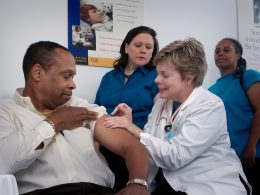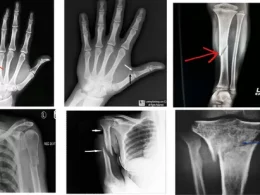Introduction:
For decades, baby aspirin has been considered a simple and accessible option for heart health maintenance. However, recent research has brought to light important considerations for its use, especially in stroke-free adults. This article delves into the evidence surrounding baby aspirin’s role in heart health and explores whether it remains a prudent choice for individuals without a history of stroke.
The Role of Baby Aspirin in Heart Health:
Baby aspirin, also known as low-dose aspirin, has been widely recommended for its potential to reduce the risk of heart attacks and certain cardiovascular events. Its blood-thinning properties were believed to contribute to improved blood flow and reduced clot formation, crucial factors in heart health management.

Evidence and Considerations for Stroke-Free Adults:
However, recent studies have challenged the blanket recommendation of baby aspirin for heart health. For stroke-free adults, the benefits of baby aspirin appear to be less clear-cut. Research indicates that the risks of bleeding associated with aspirin use may outweigh its potential advantages in this population. Stroke-free adults need to carefully consider their individual health profile and discuss with their healthcare providers before incorporating baby aspirin into their regimen.
Balancing Risks: Potential Drawbacks of Baby Aspirin:
One of the primary concerns surrounding baby aspirin usage is the increased risk of bleeding. Aspirin’s blood-thinning effects can lead to gastrointestinal bleeding, ulcers, and even hemorrhagic strokes. For stroke-free adults who are already at a relatively lower risk of cardiovascular events, the potential harm from bleeding incidents becomes a significant factor to weigh against the potential benefits.
Alternatives for Heart Health Maintenance:
For stroke-free adults seeking effective heart health maintenance without the risks associated with baby aspirin, several alternatives warrant consideration:
- Healthy Lifestyle: Engaging in regular physical activity, maintaining a balanced diet, and managing stress can significantly contribute to heart health.
- Blood Pressure Control: Monitoring and managing blood pressure levels within the recommended range can reduce the risk of cardiovascular events.
- Cholesterol Management: Keeping cholesterol levels in check through diet, exercise, and medications when necessary remains vital for heart health.
- Consulting Healthcare Providers: Individualized advice from healthcare professionals is crucial. They can provide personalized recommendations based on an individual’s health history and risk factors.
Conclusion:
While baby aspirin has long been considered a preventive measure for heart health, it’s clear that stroke-free adults need to approach its usage with caution. The evolving evidence underscores the importance of personalized healthcare recommendations. As we navigate the landscape of heart health management, a comprehensive approach that considers lifestyle modifications, risk factor control, and medical guidance remains paramount. The journey to a healthier heart involves not just a pill, but a holistic commitment to well-being.












